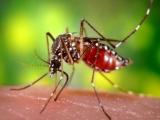According to a study yesterday in The Lancet Infectious Diseases, men who contract Zika virus have lower sperm counts for 1 to 2 months after infection. The study offers more insight into how Zika affects male reproductive health.
The prospective, longitudinal study followed 15 French male volunteers who provided semen samples for 4 months following Zika virus diagnosis. Researchers tested sperm counts as well as Zika RNA in seminal fluid, blood, and urine.
Marked drop in sperm counts
On average, the men's sperm counts plummeted from 119 million spermatozoa on day 7 post-infection, to 45.2 million by day 30. On day 60, the average sperm count rose to 70 million spermatozoa. Total sperm count generally increased back to normal levels by day 120.
Previous studies have shown that Zika virus RNA has been detected in seminal fluid for up to 188 days post-infection.
In this study, 11 men (73%) had at least one Zika virus RNA-positive seminal plasma or semen sample at day 7. In semen samples alone, Zika virus RNA was found in 3 of 14 patients at day 7, 4 of 15 at day 11, and 4 of 15 at day 20. Blood was a much more likely source of viral RNA, with 3 participants producing Zika-positive blood samples at day 120.
"Understanding the localisation of Zika virus within the male genital tract, its dynamics, and shedding in semen, is of paramount importance to prevent sexual transmission," the authors said.
According to the study, all patients developed an immune response to Zika virus, with 12 (80%) producing Immunoglobulin M antibodies at day 7, and all producing antibodies by day 20. All patients but two were immunized against dengue virus.
In a commentary on the study by experts at the University of Padua in Italy, the authors write that the current recommendation for men to abstain from sex or wear condoms for 6 months following Zika infection or exposure is still useful, but semen likely loses infectivity after the first 2 to 3 months post-diagnosis. Sexual transmission of the Zika virus via seminal fluid has been documented at 69 and 41 days after symptom onset.
The Italian scientists added, "These findings suggest a direct effect of viral infection on the testis or epididymis with impairment of sperm development, in agreement with findings in animal models."
Saliva testing for Zika
In other Zika research news yesterday, a study in the Journal of Dental Research says testing peptides in saliva may be a quick way to diagnose the Zika virus.
The research is based on the saliva of a woman who contracted Zika while pregnant with twins (one baby had microcephaly; the other did not). Researchers were able to pinpoint specific proteins in her saliva that confirmed infection with the flavivirus.
Current blood tests can detect Zika RNA only 5 to 7 days after infection. Saliva peptides can be tested for up to 9 months after infection, which makes them extremely useful for monitoring patients who are exposed to the virus but are asymptomatic.
The authors said the next steps will be collecting saliva peptide data from a larger sample size.
See also:
Aug 21 Lancet Infect Dis study
Aug 21 Lancet Infect Dis commentary
Aug 21 J Dent Res study





















